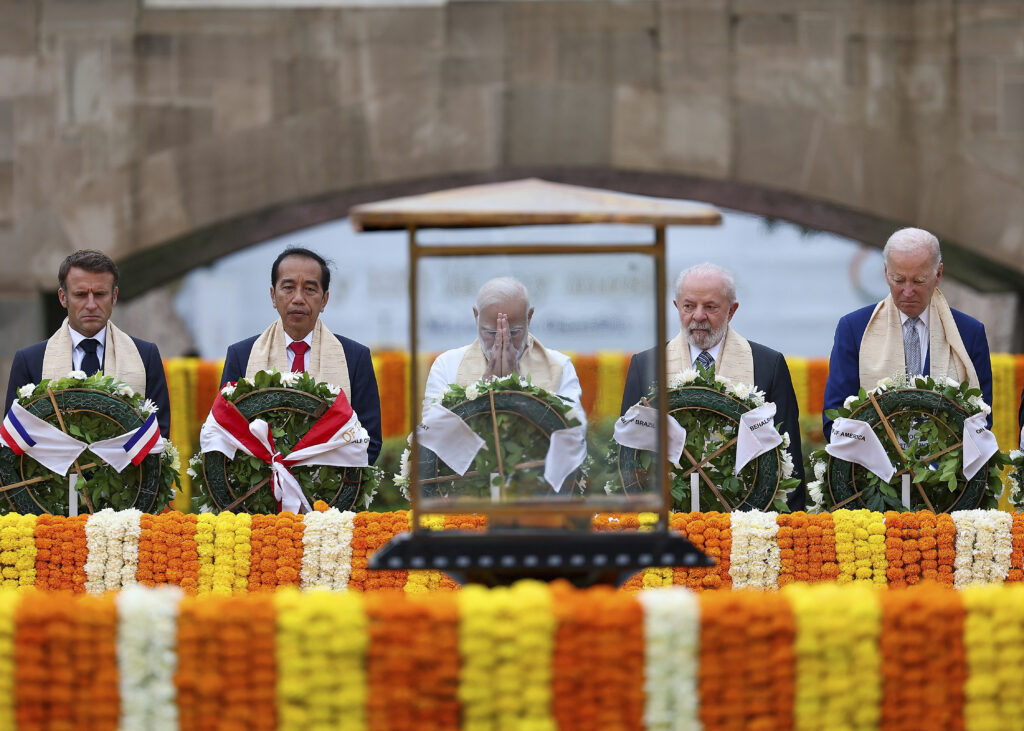
It contains member countries’ concerns about the war in Ukraine, but unlike last year, it does not contain direct condemnation of Russia for causing the war.According to the British Financial Times (FT), Prime Minister Narendra Modi of India, the chair country of the G20, adopted a joint declaration under the name of the “G20 New Delhi Leader Declaration” through working-level negotiations at the G20 summit on the 9th. The joint declaration only pointed out that “we emphasize the human suffering and negative effects of the war in Ukraine,” citing a resolution under the U.N. Charter.In a joint declaration adopted at the G20 summit in Bali, Indonesia in November last year, he used the direct expression “Russia’s invasion of Ukraine” and said, “Most member states strongly condemn the war in Ukraine.” Nearly a year later, the G20 summit’s joint declaration omitted the word “invasion,” and the word defining war was changed to “the war in Ukraine” rather than “the war against Ukraine.”The relaxation of expression was largely due to Russia and China. The Associated Press reported, “Russia and China also opposed the expression agreed at the G20 summit last year. FT pointed out, “The changed expression does not matter who is responsible for the war between Russia and Ukraine, but suggests that the two sides are involved in the same proportion.”
The joint declaration also called on Russia to allow Ukraine to export grain and fertilizer, saying it “supports comprehensive, fair and lasting peace.” It is a demand to resume the Black Sea Grain Agreement, which was suspended due to Russia’s departure. The expression, “The threat and use of nuclear weapons should not be allowed,” was included in the joint declaration this year following last year.As a result, there is a view that the joint declaration is a “product of compromise.” Instead of removing Russia’s condemnation, it has produced practical results such as urging the return of the Black Sea Grain Agreement or reaffirming its policy of not using nuclear weapons. Bloomberg reported, “As a result of compromising the confrontation between the West and Russia, both sides can claim diplomatic victory.”However, the leaders said, “All countries should not threaten or use force to acquire territory that violates any country’s territorial integrity, sovereignty, or political independence,” citing the U.N. Charter.Ukraine protested loudly. Ukrainian Foreign Ministry spokesman Oleg Nikolenko criticized on Facebook, saying, “The G20 has nothing to be proud of about Russia’s invasion of Ukraine.” On the other hand, Russia expressed satisfaction, saying, “Half of the participants in the meeting refused to accept the Western narrative and “agreed language” was used in the joint declaration.”
In particular, the news that the African Union (AU), a federation of African countries, joined as a member state also drew attention. Prime Minister Modi announced on the 9th that “the member countries have agreed to grant permanent full membership to the AU.” The AU has gained full G20 membership in the existing “invited international organization.” It is the second time that the regional union has joined the G20 after the European Union.Thanks to this, it is evaluated that India has established itself as the leader of Global South. Amid intensifying competition between China and Russia with Western countries led by the U.S., it is observed that India will gather the voices of third world countries to put more pressure on rich countries and invest more resources in food, energy crisis, and climate change. And Korea, China, and Japan sought another cooperation with Northeast Asian leaders.
JULIE KIM
US ASIA JOURNAL



